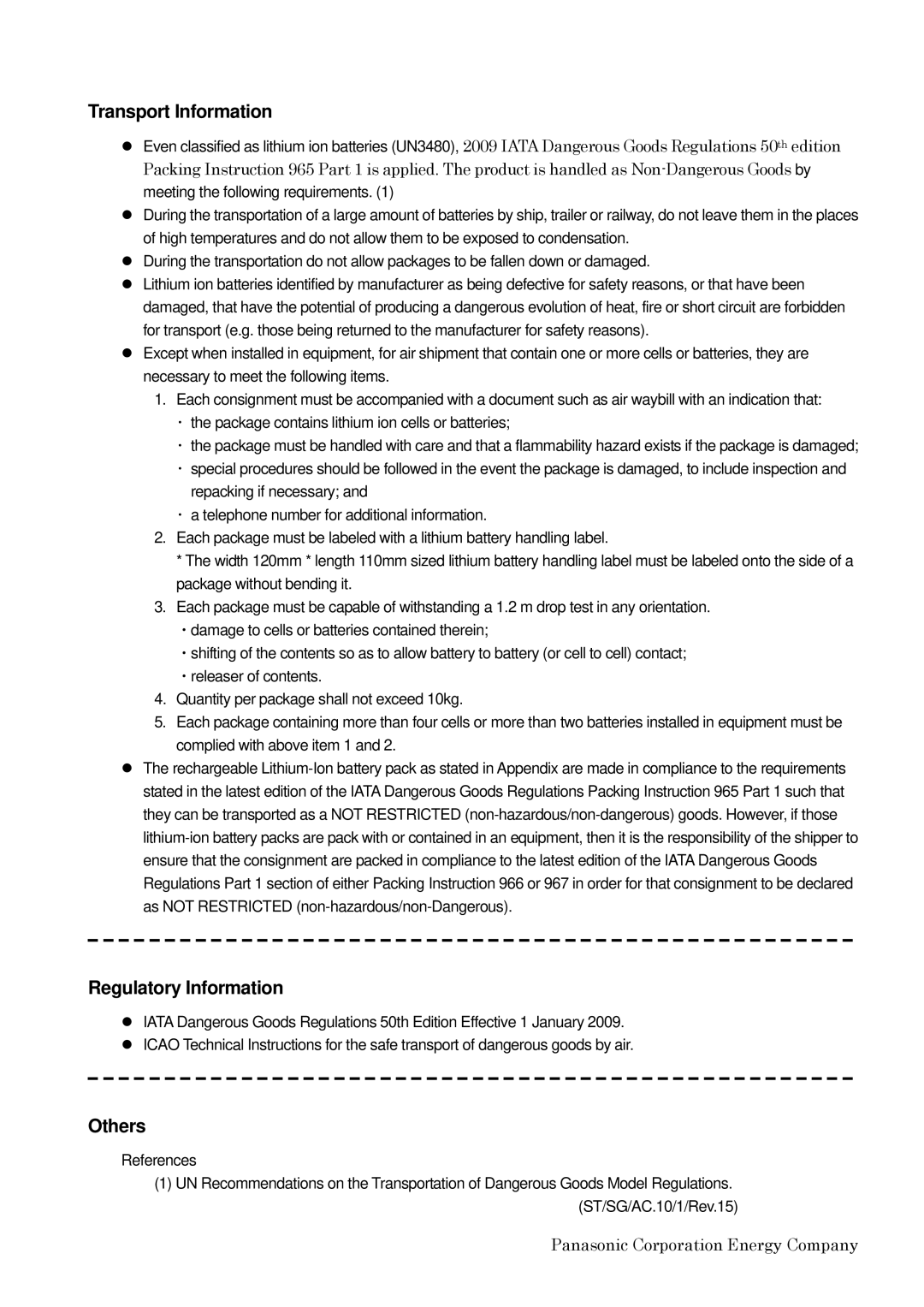Transport Information
zEven classified as lithium ion batteries (UN3480), 2009 IATA Dangerous Goods Regulations 50th edition Packing Instruction 965 Part 1 is applied. The product is handled as
zDuring the transportation of a large amount of batteries by ship, trailer or railway, do not leave them in the places of high temperatures and do not allow them to be exposed to condensation.
zDuring the transportation do not allow packages to be fallen down or damaged.
zLithium ion batteries identified by manufacturer as being defective for safety reasons, or that have been damaged, that have the potential of producing a dangerous evolution of heat, fire or short circuit are forbidden for transport (e.g. those being returned to the manufacturer for safety reasons).
zExcept when installed in equipment, for air shipment that contain one or more cells or batteries, they are necessary to meet the following items.
1.Each consignment must be accompanied with a document such as air waybill with an indication that:
・the package contains lithium ion cells or batteries;
・the package must be handled with care and that a flammability hazard exists if the package is damaged;
・special procedures should be followed in the event the package is damaged, to include inspection and repacking if necessary; and
・a telephone number for additional information.
2.Each package must be labeled with a lithium battery handling label.
* The width 120mm * length 110mm sized lithium battery handling label must be labeled onto the side of a package without bending it.
3.Each package must be capable of withstanding a 1.2 m drop test in any orientation. ・damage to cells or batteries contained therein;
・shifting of the contents so as to allow battery to battery (or cell to cell) contact; ・releaser of contents.
4.Quantity per package shall not exceed 10kg.
5.Each package containing more than four cells or more than two batteries installed in equipment must be complied with above item 1 and 2.
zThe rechargeable
━━━━━━━━━━━━━━━━━━━━━━━━━━━━━━━━━━━━━━━━━━━━━━━━━━
Regulatory Information
zIATA Dangerous Goods Regulations 50th Edition Effective 1 January 2009.
zICAO Technical Instructions for the safe transport of dangerous goods by air.
━━━━━━━━━━━━━━━━━━━━━━━━━━━━━━━━━━━━━━━━━━━━━━━━━━
Others
References
(1)UN Recommendations on the Transportation of Dangerous Goods Model Regulations. (ST/SG/AC.10/1/Rev.15)
Panasonic Corporation Energy Company
